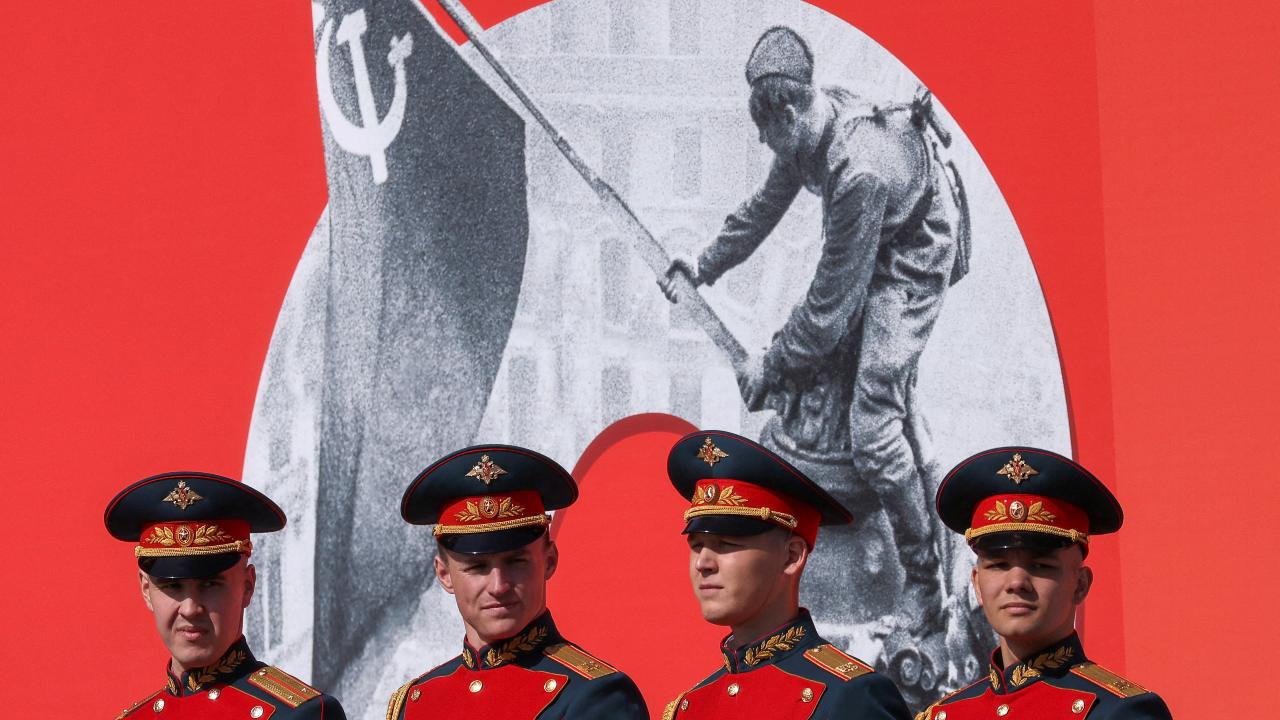Shielded by the walls of the Kremlin, answerable to no one, rarely seen even by many of his cronies, and engaged in a foolish war of choice against a once-friendly neighbor, Vladimir Putin’s May 9 Victory Day appearance will be carefully scrutinized worldwide for clues about his next steps.
The ongoing conflict in Ukraine, specifically the latest phase which started on February 24, the continuation of Russia’s eight-year war against Ukraine, is not going well.
This spectacle will be awkward — after all, there’s no new victory to celebrate. Russia’s armed forces, usually so proudly on display will not be quite so robust or look so fearsome this year. They have failed to achieve any of their objectives in Ukraine and have lost huge amounts of equipment, vehicles, aircraft and soldiers, particularly from those elite units which are usually most prominently featured. Indeed, one wonders who is going to be around to actually march and drive through Red Square on 9 May. At least 15,000 service personnel have died in Ukraine.
So what to expect?
I anticipate three possible themes, some or all of which may emerge on 9 May.
- First, Putin will focus on sustaining domestic support for his war and for his regime, by using the commemoration to remind Russians about their heroic fight against fascism and the Nazis in World War II and that this fight continues today. This message will be loudly echoed by the Russian Orthodox Church. This seems a certainty for this year’s commemoration; actually, it seems a necessity.
- A second possibility is a horizontal escalation — some dramatic action is taken to distract us and Ukraine from the main fight, and to put pressure on the unity of NATO, our center of gravity. In that vein, he could use this occasion to announce a new shift or phase of the war, including a possible general mobilization of reserves, as part of an expansion of the conflict, since he now claims that Russia stands alone against the might of NATO. Other possible types of horizontal escalation include a strike against a logistics hub in one of the NATO countries, the threat of a nuclear strike inside Ukraine, or perhaps a demonstration of nuclear capability in an isolated area in accordance with Russian nuclear doctrine as a step towards a more lethal nuclear strike.Mobilization problems, however, make this unlikely. There is great skepticism among observers of Russia’s military capabilities, that the armed forces could actually call up and successfully mobilize a meaningful proportion of Russian reserves who were trained, ready, and properly equipped to deliver decisive effect. Such an effort might very well backfire and so expose the depth of corruption within the Ministry of Defense as well as years of neglect; and it would present a problem for the government with their own population. Why is it necessary, in this special operation, to now mobilize reserves?
- The third possibility is to declare victory and wait for the West to lose interest. I expect that the Kremlin will seek to declare victory, while (possibly) issuing another barrage of nuclear threats to frighten Western citizens and governments. Putin may claim that millions of Ukrainians have been liberated from their “Nazi rulers” and that the people in Kherson, Donetsk, and Luhansk oblasts have voted for independence from Kyiv in soon-to-be organized plebiscites. The Kremlin knows that many in the West are anxious to see an end to the fighting — declaring victory and an end to hostilities would satisfy many in Europe and perhaps also in Washington DC. Putin and his cronies would hope that Western states, already forced to make very uncomfortable decisions about military spending and war-related price inflation, would once again turn away from the conflict and allow Russia time to rebuild its shattered military, and plan for a continuation of operations next year. This seems the most likely scenario. This would represent a defeat for Ukraine and the West, and it’s why we cannot allow them to do this. We must not rest until we’ve achieved our objective of a free Ukraine, expelling the Russian invader from all its land.
The need for spectacular military parades — which Putin has organized since 2008 — strikes me as a sign of insecurity. The stoic courage and tenacity of the Russian people is something which their culture should be rightfully proud, but instead of letting their deeds speak for themselves, the regime feels compelled to fabricate a story of undefeatable strength; it looks like an attempt to reassure themselves their country remains relevant. They cannot boast about their economy or their political culture. A heavily militarized May 9 gives off a sour whiff of political desperation. To put their best foot forward at this celebration, they can only put forward a military boot.
So what do we do?
We must remain focused on ensuring Ukraine wins in its war, that democracy wins, and that we protect that unity which makes NATO unassailable.
And I’ll look forward to a happier parade in Sevastopol — perhaps made sunnier with a phalanx of children from Mariupol — when Ukraine has regained sovereignty of all of its land, and is able to celebrate a successful end to Ukraine’s own Great Patriotic War.
Lt-Gen (retired) Ben Hodges (@General_Ben) was Commander USARMY Europe in 2018, after he served as Commander LandCOM at NATO. He currently holds the Pershing Chair in Strategic Studies at the Center for European Policy Analysis (CEPA).




